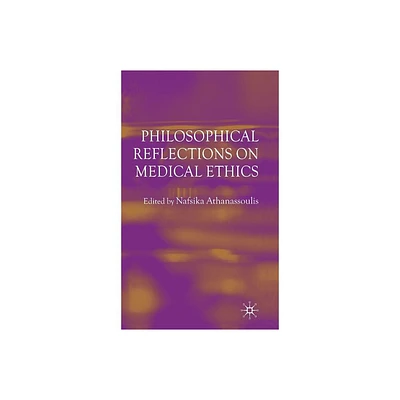Home
Philosophical Reflections on Mothering in Trauma
Loading Inventory...
Barnes and Noble
Philosophical Reflections on Mothering in Trauma
Current price: $180.00


Barnes and Noble
Philosophical Reflections on Mothering in Trauma
Current price: $180.00
Loading Inventory...
Size: OS
*Product Information may vary - to confirm product availability, pricing, and additional information please contact Barnes and Noble
Philosophical Reflections on Mothering in Trauma
examines the lived experience of mothering children who have been seriously harmed by others. Using an interdisciplinary approach, that employs a feminist phenomenology and an emphasis on narrative theory, this ground-breaking work gives voice to experiences of trauma, and of mothering, not ordinarily heard in philosophical discourses.
With a philosophical lens, Melissa Burchard examines the challenges faced by families during the adoption and parenting of abused children. In doing so, Burchard argues that the investigation of traumatic experience poses questions that philosophers must address if we are to improve collective understanding of the human condition. These questions centre around the epistemological implications of traumatic experience, the role of power and privilege in abusive relationships, and the interconnected issues of morality and moral agency in trauma, problematic desires engendered in traumatic circumstances, and therapeutic responses to trauma. The book expresses ways in which mothering wounded children can, if we are deeply engaged and reflective, shift our understandings of what it means to be parents, to be children, to love, to know, to construct a self, to feel desire, to nurture, to coerce, and to live in the ambiguity of not knowing which decisions are right and which are wrong.
examines the lived experience of mothering children who have been seriously harmed by others. Using an interdisciplinary approach, that employs a feminist phenomenology and an emphasis on narrative theory, this ground-breaking work gives voice to experiences of trauma, and of mothering, not ordinarily heard in philosophical discourses.
With a philosophical lens, Melissa Burchard examines the challenges faced by families during the adoption and parenting of abused children. In doing so, Burchard argues that the investigation of traumatic experience poses questions that philosophers must address if we are to improve collective understanding of the human condition. These questions centre around the epistemological implications of traumatic experience, the role of power and privilege in abusive relationships, and the interconnected issues of morality and moral agency in trauma, problematic desires engendered in traumatic circumstances, and therapeutic responses to trauma. The book expresses ways in which mothering wounded children can, if we are deeply engaged and reflective, shift our understandings of what it means to be parents, to be children, to love, to know, to construct a self, to feel desire, to nurture, to coerce, and to live in the ambiguity of not knowing which decisions are right and which are wrong.


















